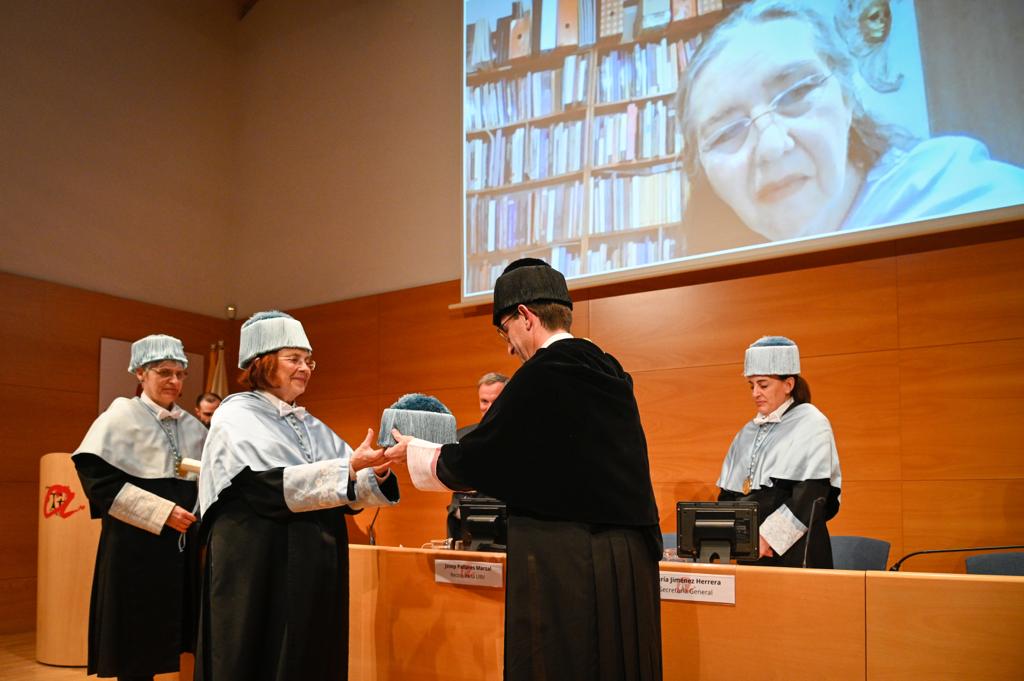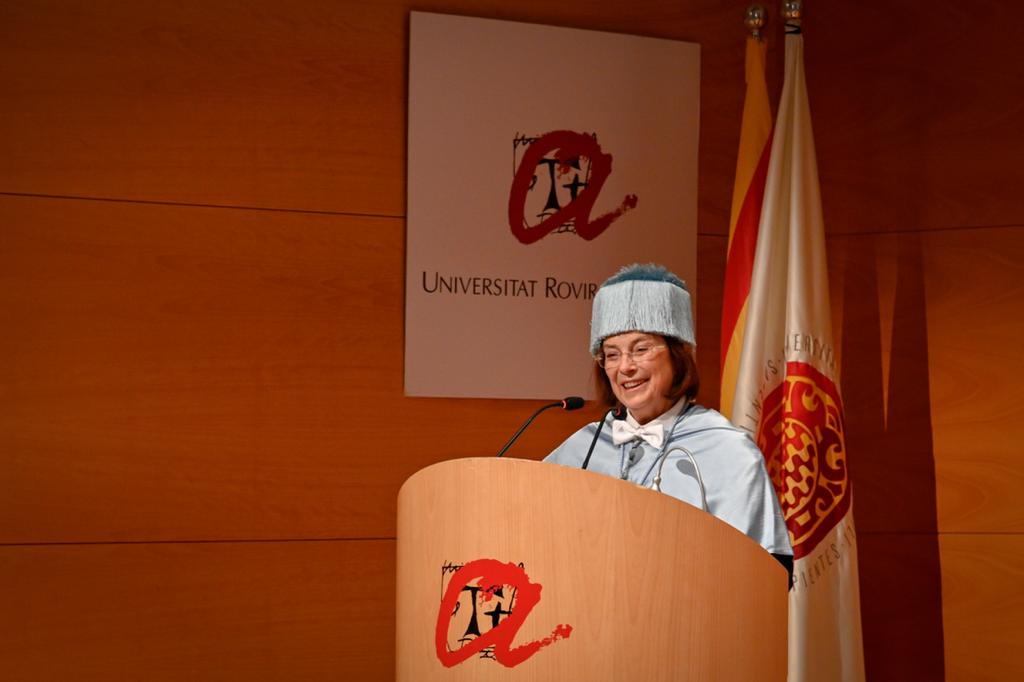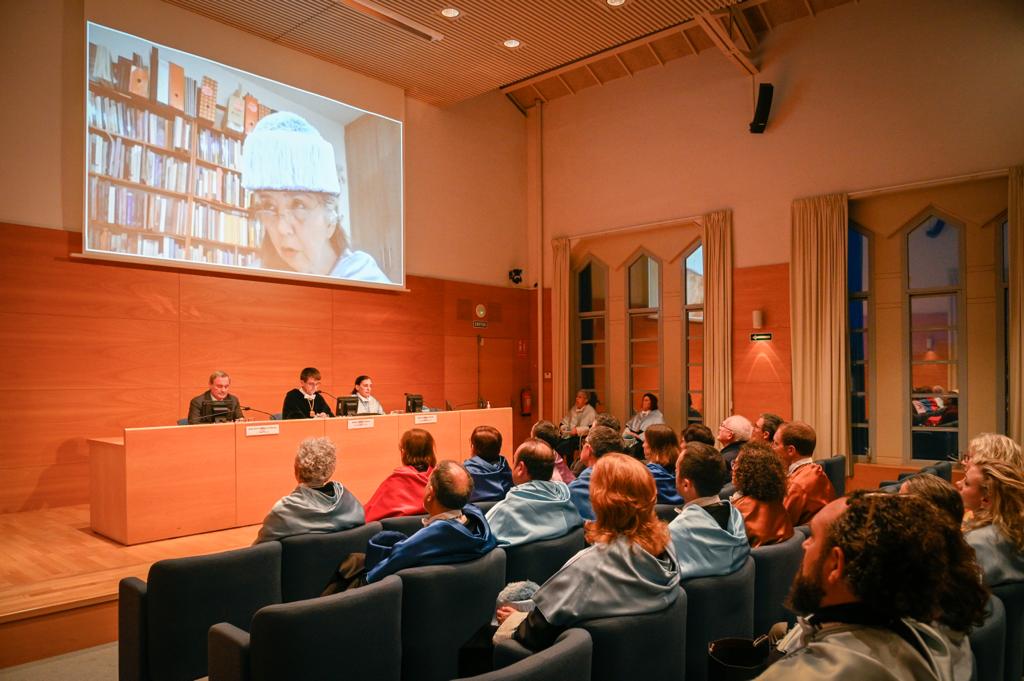12/12/2022
The URV awards an honorary degree to Marcela Lagarde, a leading feminist anthropologist
Lagarde is known for her scientific and political contributions to the struggle against feminicides

Lagarde is known for her scientific and political contributions to the struggle against feminicides
Marcela Lagarde is the 51st honorary doctor of the URV and the thirteenth woman. Today she was awarded her honorary degree by videoconference in a ceremony that served to highlight the contributions made by the Mexican anthropologist and politician in the struggle against feminicides. The ceremony has again confirmed the close link between scientific knowledge and political changes. This is personalised in Lagarde, who in her speech argued that the feminist movement is creating mentalities, rights, freedoms, critical awareness and conceptions of the world that allow us to live better.
Dolors Comas d’Argemir, emeritus professor of Social Anthropology, described Lagarde as an “excellent academic, who has left us an analytical legacy on the conditions of oppression of women”, as a “politician in her country, Mexico, and especially for her contribution to the struggle against feminicide, which has marked history.” She also mentioned her role as a social activist, collaborator of feminist networks and disseminator. The three dimensions converge and complement each other, as Comas explained.
In the academic dimension, she highlighted the doctoral thesis The Women’s Captivity, “an absolutely pioneering text in women’s Anthropology written from a feminist perspective” in which women are not the object of study but the subject. The research attempts to “understand the conditions of oppression and domination” with “the feminist gaze that adds to the simple gender perspective.” In her career, she has analysed the power relations that generate the invisibility of women, the forms of oppression but also their struggles and achievements.

Lagarde is known for her work in the political and social sphere, for denouncing violence against women, explaining the instruments to eradicate it and raising awareness in society. As a result, she managed to have femicide included in Mexican legislation and classified as a crime in the Mexican penal code. As a member of parliament, she focused on the struggle to put an end to the violence against women and, to the horror of the world, she revealed that in Ciudad Juárez, among other places in Mexico and around the world, women were being raped and murdered on a daily basis.
Lagarde is the driving force behind the concept sisterhood, which refers to the commitment among women as the basis of their struggle against the phenomena of oppression, Comas explained. It is one of her contributions as an activist, spreading a transformative term because it “enables spaces to be formed in which women can create new possibilities for life.”
The feminist gaze has made a major contribution to the eradication of violence against women, in its broadest sense. In her speech, Lagarde spoke about the violence and oppression suffered by women. She also explained that the scenario generated by the latest pandemic has accentuated gender inequalities and injustices.

“From women’s point of view,” she argued, “there is a similarity between the pandemic and violence. If they are analysed together, they have similar features, they fuel each other, women become more fragile and the progress made between women and men for equality in democracy weakens”. Thus, for example, “we have returned to the antagonistic binary opposition of the double working day for women.” On the other hand, some of the changes made in response to the pandemic are those that the feminist movement had already “pursued centuries ago to abolish gender oppression and deprivation, such as the creation of a comprehensive system of care, the development of a sustainable solidarity economy and the urgent need to relieve women of their workloads.”
For this reason, Lagarde made a strong defence of feminism, which “has shown that it is urgent to put an end to a social order that preys on the environment, the economy and the socio-cultural heritage.” From an anthropological point of view, “the greatest contribution women as a gender have made to the world is feminism, because it creates mentalities, values, rights, freedoms, critical awareness, conceptions of the world and ways of life so that we can live better. In fact, this is what is sustained by the group of intellectuals that created the paradigm of Sustainability in the Concept of Human Development: Martha Nussbaum, Mahbub ul Haq and Amartya Sen. The last academic to be awarded an honorary degree by the URV, Lourdes Beneria, made a summary of Sen’s contribution to the feminist economy and quantified the number of girls and women who have been victims of femicide in Asia to be 100 million.
Marcela Lagarde finally recalled that feminism formulates and forges the cultural paradigm of human rights as “the notion that we are all equivalent and equal,” she concluded.
As a sign that the new honorary degree holder has been accepted into the URV’s scientific community, the Rector gave the sponsor, Dolors Comas d’Argemir, the qualification that accredits the highest distinction of the University for Marcela Lagarde, the medal and the biretta, as well as the attributes that go with the distinction: the book of science and wisdom, the ring given as a symbol of the privilege of sealing the opinions of science and the profession, and the white gloves.
Pallarès pointed out that the last three academics to be awarded an honorary degree by the URV, Marcela Lagarde, Lourdes Beneria and Esperanza Martínez, from three different areas of knowledge (Anthropology, Economics and Law), have spoken out against androcentrism and for the need to find interdisciplinary solutions.
Whole ceremony
More news about: Honoris Causa

